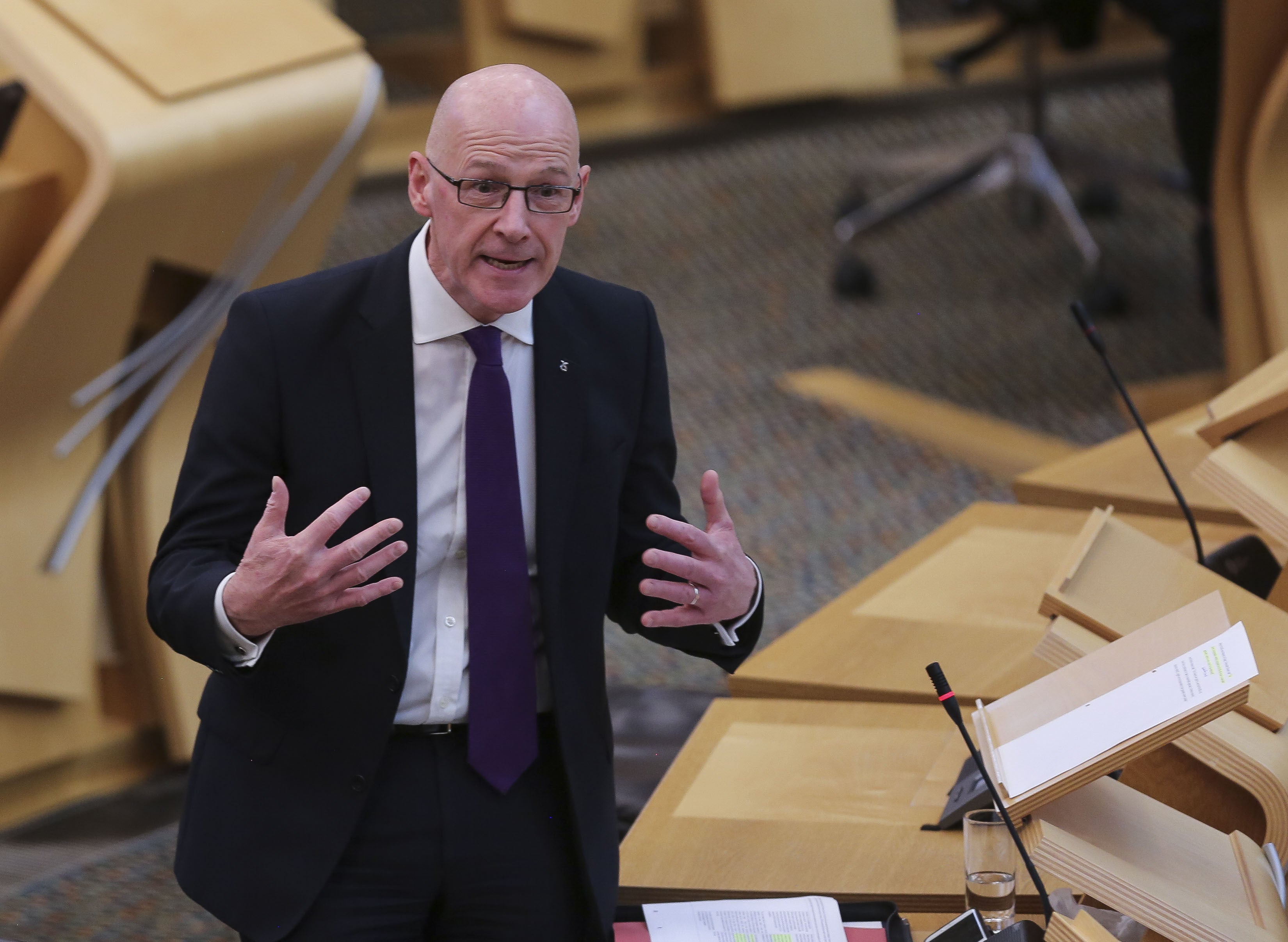Holyrood passes Covid compensation Bill and backs review of isolation grants
Deputy First Minister John Swinney agreed that the level of self isolation support grants would be reviewed.

Holyrood has backed the continued suspension of requirements for health boards to pay compensation to people with coronavirus who have to isolate and agreed to review the value of self-isolation grants.
Under public health legislation introduced in 2008, people with infectious diseases are entitled to compensation for loss of earnings if they are forced to isolate.
That rule has been suspended since the start of the coronavirus pandemic, changing it from an obligation to a discretionary payment, with the Scottish and UK Governments instead offering financial and practical support to those who must self-isolate due to Covid-19.
MSPs have now unanimously passed a Bill to continue the suspension of compensation from health boards until October if they must isolate because of Covid-19, while allowing compensation for other infectious diseases.
We can make sure that health courts are protected from significant financial and administrative burdens, and they can focus on providing essential care
Parliament also passed a Scottish Labour amendment calling for the Government to reassess the level of self isolation grants for eligible people – currently set at £500 – with the view to increasing it to at least the living wage.
Opening a debate at the Bill’s third stage, Deputy First Minister, John Swinney warned that failing to pass the legislation would come at a “significant cost to health boards”.
Mr Swinney said: “The Scottish Government’s indicative analysis demonstrates that this could cost as much as £320 million each year, at a time when significant resources have been put into our pandemic response. This is not an efficient use of public funds.
“Health boards, at a time when they’re trying to reduce the backlogs in care caused by the pandemic would, in addition, have to find the staff and resources to process applications for compensation.”
He added: “If Parliament passes this Bill here today, we can make sure that health courts are protected from significant financial and administrative burdens, and they can focus on providing essential care which is such a vital part of our work as we build our recovery from Covid.”
Arguing for a review of how much the self-isolation grants pay out, Scottish Labour’s health spokeswoman, Jackie Baillie, said increasing it would “ensure that no one is left at a financial disadvantage, especially when they’re acting in the public interest”.
“Self-isolation support grants are welcome and very much needed if people have to comply with the stay at home rules,” Ms Baillie said, although she expressed concern that fewer than half of all applications had been successful, while many people do not know they are available.
She added: “The grant is currently capped at £500 so workers who usually work full-time on the national living wage would come out of a 10-day self isolation period out of pocket.
“This is despite being successful in the grant application and Scottish Labour believes that there should be an increase in the amount paid out in the self-isolation grant so that it at least matches the living wage of £9.50 from April.
“This will ensure that people who are low paid are not left worse off because they followed the rules.”
In response, Mr Swinney pointed out that the isolation period has been cut from 10 to seven days in some cases, but said: “I do accept the terms of the amendment which asked the Government to review the amount paid and we will do that.
“I know our objective is to ensure that it at least matches the National Living Wage, which has been our position throughout the course of the pandemic.”
Subscribe to Independent Premium to bookmark this article
Want to bookmark your favourite articles and stories to read or reference later? Start your Independent Premium subscription today.
